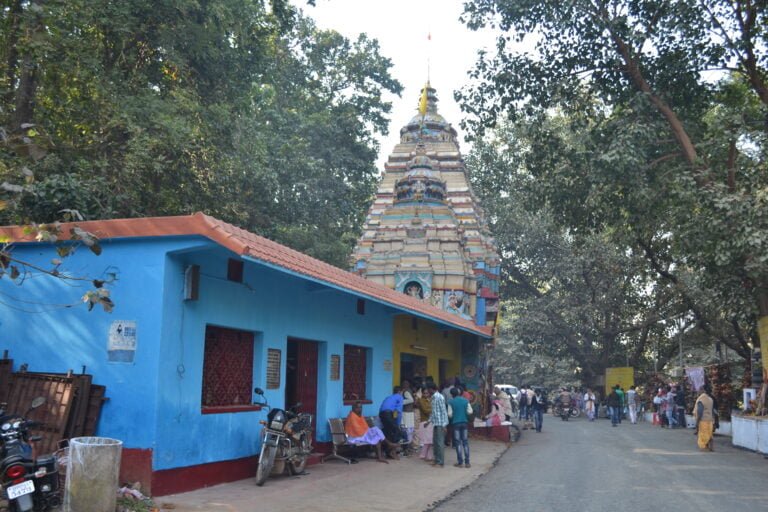Rankini Mandir: A Divine Temple in Jamshedpur

Rankini Mandir, also known as Kapadgadi Ghat Rankini Mandir, is a sacred temple located in Rohinibera village of Bansila Gram Panchayat in Potka block, near Jadugora, Jamshedpur in Jharkhand, India. Situated near the Hata-Jadugora State Highway, this temple holds great significance for the locals and devotees who visit it.
The temple is dedicated to Goddess Kali, and the stone idol is believed to be a physical incarnation of the goddess herself. In ancient times, people traveling through the dense forest used to seek the blessings of Rankini Devi for protection and well-being. The temple’s history dates back to 1947-50 when it was established, and it has been a place of worship ever since.
The story behind the temple’s establishment is fascinating. According to local legends, a man named Dinbandhu Singh had a dream in which Goddess Rankini appeared to him and revealed her presence in the form of a stone. She instructed him to worship her and establish a place where the public could also come and seek her blessings. Following the divine instructions, Dinbandhu Singh established a stone idol as the murthi (idol) of Goddess Rankini, and this is where the temple stands today.
Over the years, the temple has been managed by Dinbandhu Singh’s descendants, including his son ManSingh and later his grandson Baidyanath Singh. The stone idol of the goddess is said to be a living stone, with its size increasing year after year. This phenomenon is considered a testament to the divine presence of Goddess Rankini.
The temple’s location in the Kapadgadi Valley adds to its charm and spiritual ambiance. According to the local folklore, Goddess Rankini used to reside in the forests of the valley. Once, when a shepherd spotted her walking alone, he tried to approach her, but she eluded him by hiding in a washerman’s cloth bag. To everyone’s astonishment, the pile of clothes in which she hid turned into stone. It is believed that the stone idol worshipped in the temple is the same divine manifestation of Goddess Kali.
Rankini Mandir has a rich historical background. The temple is said to have existed on a rock in ancient times. It is believed that human sacrifices (narabali) used to take place at the temple until about 1865 when the British put an end to this practice. The local tribes believed that the goddess herself would slay the victims. Originally worshipped by the Bhumij tribes, the temple’s worship gradually transformed into the worship of Hindu Goddess Durga, possibly when the Kings of Dhalbhumgarh took over.
The temple, as it stands today, was built around 1950 and is approximately 70 years old. The trust managing the temple was formed in 1954 to ensure the smooth functioning and maintenance of the sacred site. Alongside the main temple dedicated to Goddess Rankini, there are also temples dedicated to Lord Ganesha and Lord Shiva, adding to the spiritual aura of the place.
The fame of Rankini Mandir extends beyond the local community. The renowned Bengali writer Bibhutibhushan Bandyopadhyay has mentioned Rankini Devi in his Bengali story named “Rankini Debir Khadga.” This literary reference further highlights the cultural and historical significance of the temple.
Visiting Rankini Mandir offers a unique opportunity to experience the divine presence and immerse oneself in the rich cultural heritage of the region. The temple’s serene surroundings and the devotion of its worshippers create an atmosphere of peace and spirituality.
![]()